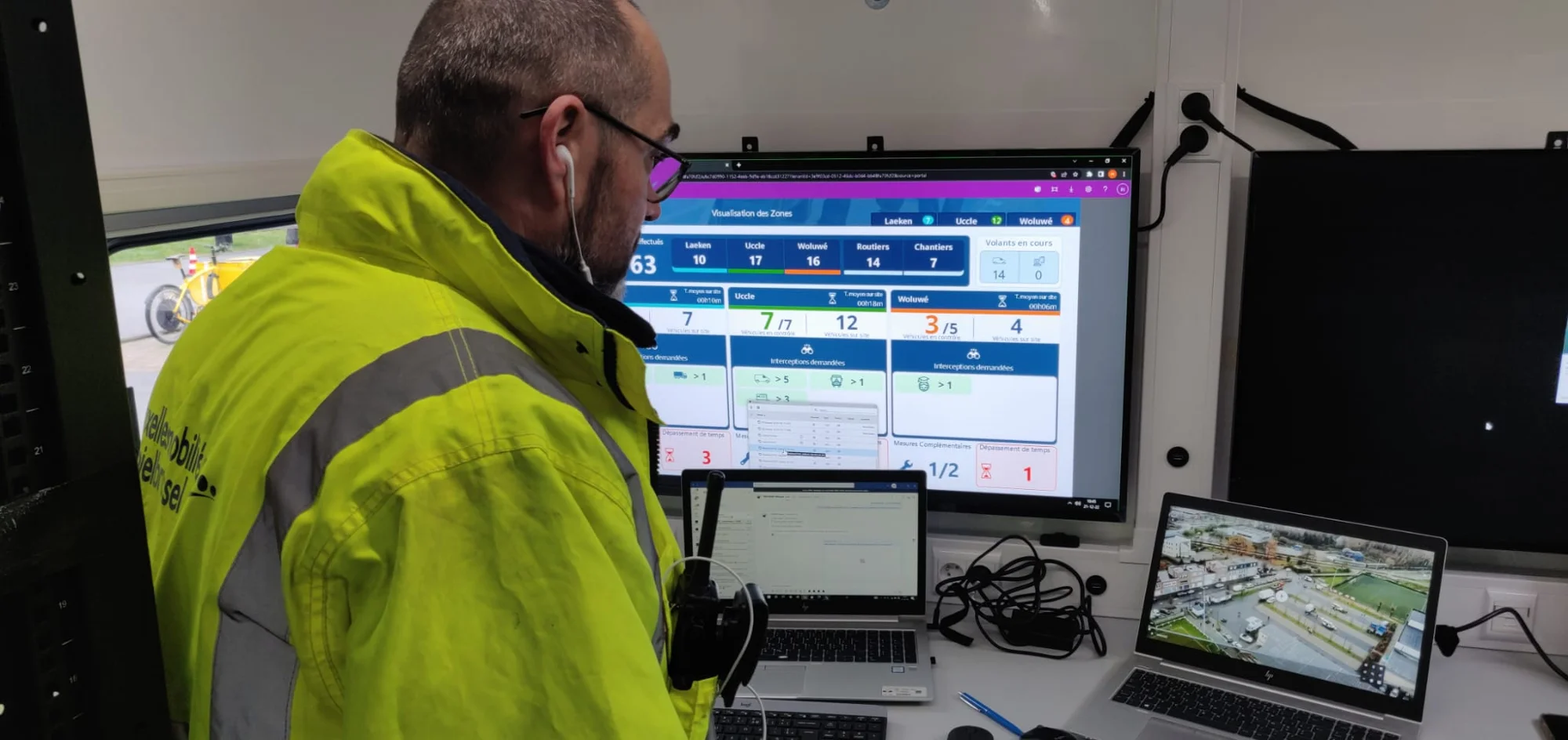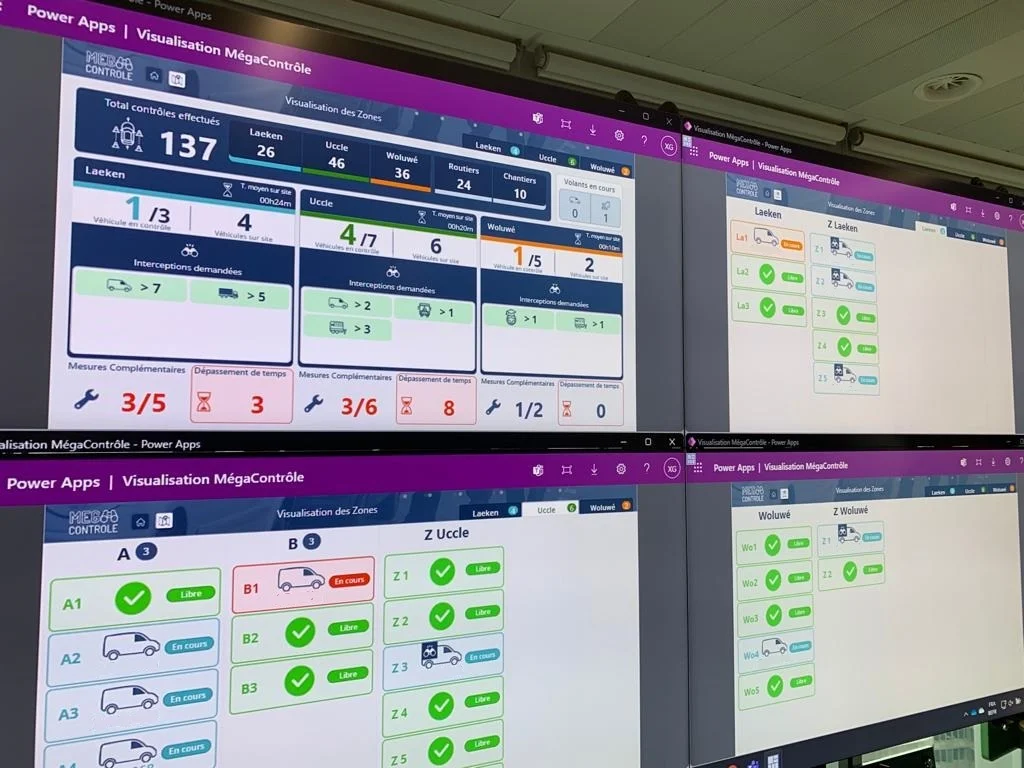The results show that such controls of the transport sector are necessary for increased road safety and to ensure fair competition.
Several times a year, Brussels Mobility organizes major checks in the transport sector with the aim of improving road safety. During such a check, trucks, training cars, taxis, limousines and other forms of special regular transport are checked. It is also checked whether the drivers are not under the influence of alcohol or drugs.
Today's control action was organized simultaneously at three locations: in Uccle, Woluwe-Saint-Lambert and Laeken. In Uccle, the emphasis was on vans and special forms of regular transport, in Woluwe on lesson vans, vans and trailers and in Laeken on vans and trucks. Taxis and rental vehicles with drivers and the proper course of construction sites were also checked at the three locations.
With a view to the optimal coordination of such a large-scale inspection, great importance is attached to the exchange of information between the various teams. Brussels Mobility has a new control dispatching in the Iris Towers and a mobile control unit ('command car') for this purpose. Both have different screens on which the images from the bodycams and drones can be shown. In these dispatchings, a limited number of employees also have access to databases containing sensitive information such as permits or licences.

"The results show that such controls of the transport sector are necessary for more road safety and to ensure fair competition. Professional drivers cover more kilometers and therefore it is especially important that they comply with the rules. Bravo to Brussels Mobility, the police and the federal services for this wonderful collaboration."
Minister of Mobility Elke Van den Brandt
The inspectors of Brussels Mobility have the status of Agent or Officer of the Judicial Police. After training resp. After 300 or 400 teaching hours, they may check whether delivery vans and trucks are correct and not overloaded, student transport is in accordance with the rules, construction sites are being carried out correctly, the papers of the vehicles are in order, taxis and rental vehicles with drivers have the necessary permits, teaching vehicles and supervisors meet all the conditions…
In addition, the FPS Mobility and the Regional Labor Inspectorate check whether social and labor legislation is being complied with, the FASFC checks whether foodstuffs are transported correctly and Bruxelles-Propreté ensures that no illegal waste shipments take place.
Today's check yielded the following results:
456 checks were carried out on 261 vehicles and construction sites. A violation was found in 20% of these cases. For the 261 vehicles and construction sites checked, 54 irregularities were found, 14 PVs were drawn up, 1 driver's license was withdrawn for 15 days, 1 load was seized and 1 construction site stopped.
Photo: Brussels Mobility




